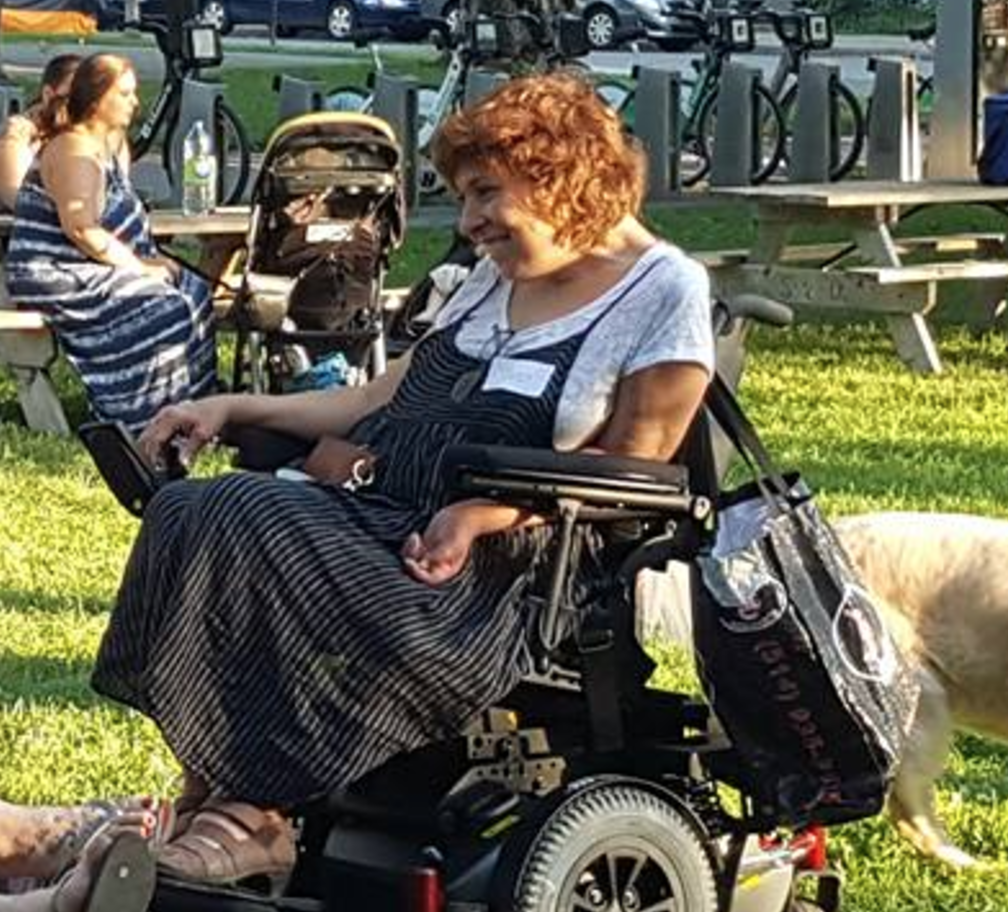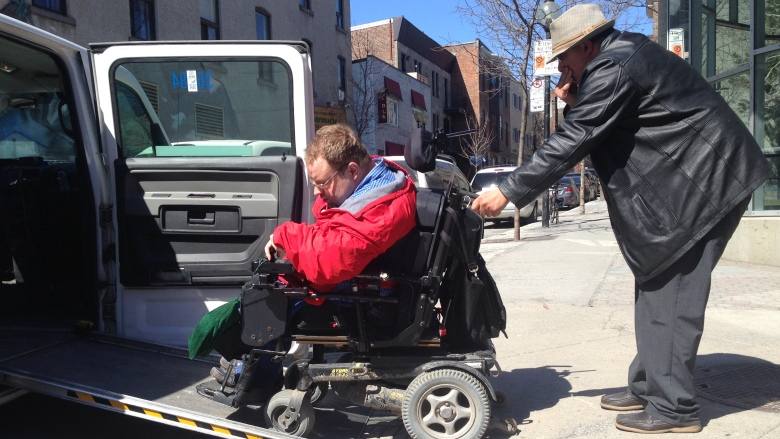How many of us have walked down a city street and helped someone overcome some physical hurdle?
Plenty of us, I would wager.

Jody Negley is slowly learning to cope with both the emotional and physical challenges of moving about Montreal in a wheelchair and this week penned an op-ed in The Gazette about what others can do to help rectify the continuing indignities disabled people face daily. (Courtesy of Jody Negley)
How many of us have walked down a city street and looked the other way?
A lot of us, I would also wager.
How many of us have simply breezed down a city street thinking how great it is to be alive?
Hopefully, a lot of us.
But here’s the loaded question: How many of us ever even consider what it would be like not to be able to do any of those things because–somehow–we had become disabled in some fashion–maybe confined to a wheelchair?
Not all that many of us, I bet.
Just another part of city life, we blithely explain to ourselves.
Until it happens to us or someone we know and/or love.

Laurent Morissette, a member of Le Regroupement des activistes pour l’inclusion au Québec (RAPLIQ), exiting an adapted taxi in 2015, says it’s frustrating to be undermined every day when he uses public transit. (Stephen Rukavina/CBC News)
Seems it’s only then that we begin to notice things like a lack of access ramps to restaurants or what Metro stations are available to us.
It happened to a former social worker named Jody Negley, who earlier this week wrote an op-ed piece in the Montreal Gazette entitled “Opinion: Disabled Montrealers could use some allies.”
Negley was limited to a wheelchair two years ago, facing new challenges.
How she got there and and the accompanying awareness of what disabled people face daily took a long time, as she explained to me in an email to me.
“I had multiple surgeries in my early twenties then was able to return to school and work as a social worker, never missed a day of work until, at the age of 39, I needed more back surgery. It went badly; I lost my ability to walk and spent the subsequent years relearning how to walk with a cane… Never very safely (falling daily). Everyone thought I should be in a chair but I fought against it for fifteen plus years. I fell often but was always able to pick myself up and keep going. When I could no longer get up off the floor, and to avoid injuring my shoulder, I finally agreed to use a chair.
“It is ironic and humbling that in all my time as a social worker, I made a point of working with other issues and populations. I didn’t want any association with the disability community and was in pretty deep denial of my own disability. After I began using a chair, I could no longer deny my membership to this group to which I did not want to belong; and I was ashamed at my own prejudice and ignorance of disability and universal accessibility.
“I’m hoping that there will be people who are willing to become an active ally for inclusion rather than a passive observer of the status quo and just another obstacle to inclusion.
“One shouldn’t have to be in a wheelchair to be part of a movement calling for legislation that will enforce universal accessibility principles… Legislation that is long overdue in Quebec.”

Jody Negley is determined to better the lot of disabled people but says a lot of help can be provided by her follow citizens.
Negley’s op-ed piece is both a call to action and a plea for compassion.
Most important perhaps, it’s a roadmap for anyone who feels they might want to help do something about the indignities faced by so many of our fellow citizens.
I spoke by phone with Negley, who is currently taking part in a three-month design challenge, Enable MTL Sans Obstacles, organized by the Office of Community Engagement at Concordia University, at her Montreal home on Thursday.
Listen






For reasons beyond our control, and for an undetermined period of time, our comment section is now closed. However, our social networks remain open to your contributions.